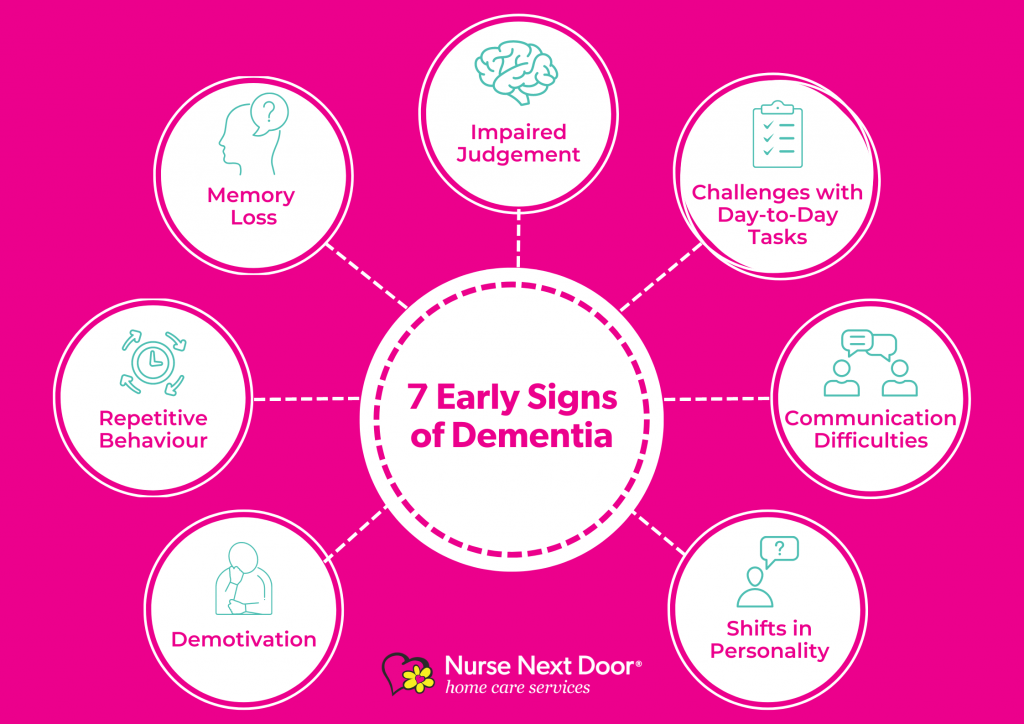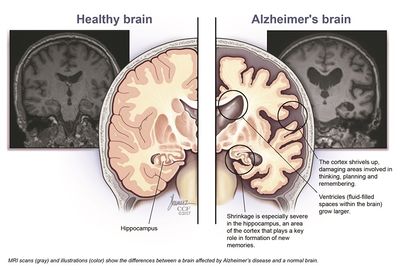Understanding the Influence of Dementia on Life and Caregiving
Dementia impacts day-to-day live in profound methods, impacting not simply those identified but likewise their caregivers. As cognitive decrease advances, you might notice adjustments in communication and regular that difficulty both parties. Recognizing these shifts is important for keeping dignity and engagement. Just how do you adapt your caregiving methods to sustain somebody traversing this facility journey? The responses could amaze you as we discover the nuances of this experience.
The Stages of Dementia and Their Impacts on Life
As you browse the trip of mental deterioration, understanding its phases can markedly influence exactly how you handle day-to-day life. Mental deterioration usually progresses through three primary phases: early, middle, and late.
Throughout the middle stage, you'll experience a lot more recognizable cognitive decrease. Daily jobs may end up being challenging, and maintaining your independence might call for changes. Using pointers and simplifying your environment can aid.
In the late phase, people usually require substantial help with day-to-day tasks. Planning for care ends up being essential, focusing on comfort and high quality of life. By recognizing these phases, you're better geared up to react proactively, guaranteeing you or your liked one can navigate the obstacles with self-respect and grace.

Changes in Communication and Social Interaction
Just how do modifications in communication affect your daily communications as mental deterioration advances? As mental deterioration advances, you might see that straightforward discussions become challenging.
You might discover it simpler to connect via these ways rather than relying solely on talked language. Listening skills can additionally alter; you may find it tougher to remember or adhere to discussions what was just claimed (Fall Risk). This can lead to misconceptions or feelings of seclusion
Motivating persistence and developing a helpful environment can assist. Participating in tasks that promote link, like music or art, can enhance social communications. Keep in mind, keeping connections is still possible; it's practically adjusting to new ways of interacting.
Influence On Daily Routines and Activities
While steering everyday routines, you'll likely notice that tasks you as soon as finished easily ended up being much more challenging as mental deterioration advances. Simple tasks like food preparation, dressing, and even showering may need more time and initiative. You might locate yourself neglecting action in familiar routines or battling to recall where you positioned items. This can cause irritation not simply for you, however additionally for those around you.
Preparation your day can really feel frustrating, making it tougher to adhere to a timetable. You might require tips for visits or to take medicines. Adapting your atmosphere can assist; for example, labeling items or making use of lists can simplify tasks. Engaging in recurring, organized activities can likewise supply comfort and a sense of achievement. Keep in mind, it's fine to request for aid. Surrounding yourself with supportive friends or family can make managing these modifications a bit less complicated.
Psychological and Behavioral Challenges
Guiding with everyday routines can produce not simply useful obstacles, yet likewise emotional and behavior ones. You could discover adjustments in mood, such as boosted anxiety or aggravation, which can originate from confusion or problem in finishing tasks. As you browse these minutes, it is important to identify that your loved one might express their feelings via behaviors like frustration or withdrawal.
These emotional feedbacks can be unpredictable and might emerge without warning, leaving you both feeling overwhelmed. You might locate that acquainted settings or routines can help in reducing stress and anxiety, however maintaining perseverance ends up being significant. It is very important to validate their feelings, even if you don't completely understand them.
The Function of Caregivers in Sustaining People With Mental Deterioration
As a caregiver, you play a crucial role in offering psychological assistance for people with mental deterioration. Developing daily care routines can produce a feeling of security and comfort, aiding to ease their stress and anxiety. By recognizing their needs and using efficient approaches, you can greatly enhance their quality of life.
Emotional Support Strategies
When caring for someone with dementia, understanding the emotional landscape is vital for supplying efficient support. You'll typically discover that persistence and empathy go a long way. Validate their feelings; if they express confusion or aggravation, acknowledge it without rejecting their emotions. Easy gestures, like holding their hand or preserving eye get in touch with, can produce a complacency. Try to take part in tasks that they appreciate, as this can stimulate joy and connection. Keep in mind to connect clearly and gradually, using a calm tone. Motivate expression via songs or art, which can function as a powerful outlet. Ultimately, don't forget to care for your very own emotional needs; seeking assistance for on your own can boost your capability to take care of them. visit
Daily Treatment Routines
Establishing daily treatment regimens is necessary for offering stability and comfort to people with mental deterioration, as these routines can help in reducing confusion and anxiousness. You can start by detailing a consistent timetable for meals, activities, and rest. This predictability helps your enjoyed one feel a lot more safe and secure and engaged.
Integrate acquainted jobs, like folding laundry or watering plants, which can stimulate positive memories and promote a sense of success. Usage aesthetic hints, such as calendars or checklists, to guide them through the day.
Be versatile, though; adjust regimens as needed based on their mood or energy degrees. Frontotemporal Dementia. Keep in mind, your perseverance and understanding are vital in maneuvering their altering requirements, guaranteeing they really feel sustained and valued throughout their day-to-day live
Developing a Safe and Comfortable Living Environment
Producing a secure and comfy living setting is vital for people with mental deterioration. You'll wish to make home security alterations that minimize threats and assure knowledge to supply a feeling of her comment is here convenience. By concentrating on these elements, you can assist produce an area that supports both safety and well-being.
Home Safety Modifications
As you navigate the obstacles of mental deterioration, making home safety and security alterations can considerably improve convenience and protection. Beginning by getting rid of tripping risks like rugs and clutter, guaranteeing pathways are clear. Install grab bars in restrooms and non-slip mats in the shower to prevent falls. Think about utilizing brighter illumination and evening lights to boost presence, especially during nighttime. Label vital areas, such as the bathroom and kitchen area, with clear indications to assist with orientation. Secure any kind of sharp objects or poisonous substances out of reach. In addition, analyze your home's alarm systems and locks to confirm they're user-friendly and provide assurance. These alterations not just promote safety yet likewise urge self-reliance, allowing your enjoyed one to really feel more secure in their setting.
Comfort and Familiarity
After making certain a safe atmosphere with essential modifications, cultivating convenience and knowledge is crucial for individuals with dementia. Start by customizing their area. Usage familiar colors, designs, and photos that stimulate satisfied memories. A favorite blanket or chair can supply a complacency. Keep a regular routine to help them feel grounded and decrease anxiousness. Straightforward, acquainted meals can also create a soothing ambience. Maintain paths clear and clutter-free to prevent confusion. Integrate soft lights, as bright lights can be disorienting. Consider including comforting scents, like lavender, to promote additional hints relaxation. Taking part in acquainted tasks, such as listening to songs or gardening, can improve their feeling of belonging, making their living setting a real shelter.
Techniques for Effective Caregiving and Support
While maneuvering the challenges of mental deterioration treatment can really feel frustrating, implementing effective techniques can considerably improve both the caretaker's and the patient's daily experience. Begin by establishing a routine; predictability helps decrease anxiety for both you and your liked one. Use clear, easy communication-- straight questions and brief sentences can avoid complication.

Don't fail to remember to look after yourself; schedule breaks and connect with assistance teams. Sharing experiences with others in comparable scenarios can give important insights and psychological relief.
Last but not least, remain patient and flexible. Mental deterioration can bring unpredictable changes, so adapting your technique is essential. By employing these techniques, you can promote a more positive atmosphere that profits both you and your enjoyed one.
Regularly Asked Inquiries

What Are the Different Kinds Of Mental Deterioration?
You'll locate several kinds of mental deterioration, consisting of Alzheimer's, vascular mental deterioration, Lewy body dementia, and frontotemporal dementia. Each type impacts memory and cognitive feature differently, so comprehending the differences is important for correct diagnosis and care.
Just How Can I Aid Someone With Early-Stage Dementia?
You can aid someone with early-stage mental deterioration by being patient, providing support, and urging them to involve in activities they take pleasure in. Maintaining regimens constant and preserving open communication can also make a significant difference in their life.
Exist Financial Resources Available for Mental Deterioration Treatment?
Yes, there are financial resources available for mental deterioration care. You can check out entitlement program programs, not-for-profit companies, and insurance policy choices. It's likewise important to consult neighborhood firms for details sources tailored to your situation.
What Lawful Factors To Consider Should Caregivers Understand?
As a caretaker, you should think about power of lawyer, medical care proxies, and guardianship regulations. It's important to understand the legal rights and responsibilities you hold, guaranteeing your loved one receives proper care and protection.
Just How Can I Handle Caretaker Stress And Anxiety?
You can cope with caretaker anxiety by focusing on self-care, looking for support from teams or pals, setting reasonable assumptions, taking breaks, and practicing relaxation strategies. Bear in mind, your well-being matters just as much as the person you're caring for.
Recognizing the Effect of Mental Deterioration on Daily Life and Caregiving.
As you browse the trip of dementia, comprehending its phases can considerably influence how you handle day-to-day life.While navigating day-to-day routines, you'll likely see that tasks you as soon as completed easily become a lot more tough as mental deterioration advances.Establishing day-to-day treatment routines is vital for providing security and comfort to people with dementia, as these routines can help decrease complication and stress and anxiety.While steering the obstacles of dementia treatment can feel frustrating, carrying out efficient approaches can substantially boost both the caregiver's and the patient's day-to-day experience.